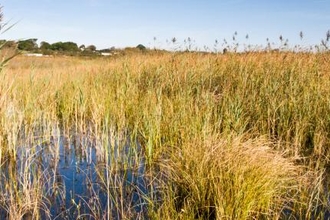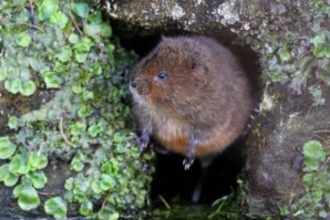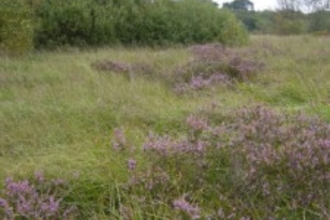Coombe Down
One of Kent Wildlife Trust’s newest Dover reserve, Coombe is undergoing management to restore chalk downland to the reserve, with a future goal to re-introduce frog orchids back to the site.
Tom Hibbert
2209 results
One of Kent Wildlife Trust’s newest Dover reserve, Coombe is undergoing management to restore chalk downland to the reserve, with a future goal to re-introduce frog orchids back to the site.
Coombe Hill Canal and Meadows is a place of vistas and endless skies, of floods and farming, an ancient landscape fringing the River Severn. Whether it’s a chilly autumnal morning or warm summer’s…
Coombs Meadows (or Combs, Combes or Coombes, depending on provenance!) are a suite of grasslands overlooking the Vale of Belvoir. Take a stroll around this botanical haven this summer, and enjoy…
Bedfordshire's largest remaining area of heathland
Famous for its steep slope, Cooper’s Hill is also an internationally renowned ancient beech woodland with areas of open scrub and grassland.
Please note that from mid-September tree…
Wildlife and a wealth of wildflowers are reclaiming this former railway-line near Preston.
Water-filled former gravel diggings, now a series of secluded shady pools
On the edge of the Stour Estuary, you'll find the flourishing Copperas Wood Nature Reserve, filled with blooming wild flowers in the spring
Situated on the edge of the New Forest, Copythorne Common shares many of the same habitats and much of the wildlife as the nearby National Park.
A traditional hay meadow with an abundance of wildflower species.
Lying near the banks of the River Stour, this reserve is special for its mix of open water, fen and wet scrub.
See prehistoric-looking dragonflies and insect-eating plants and listen for the bizarre calls of the elusive nightjar.
Wetland wildlife haven, home to Dyfi Osprey Project and Dyfi Wildlife Centre

One of the last six raised bogs in Wales, one of only two known sites for the Black Bog Ant
While away the hours exploring this spectacular patchwork of habitats, each with its own unique character and array of wildlife.
Cors Goch is part of a lowland raised mire and is one of the last six large raised bogs in Wales. A notified SSSI and part of the Cors Goch Llanllwch NNR.

An upland valley mire with an interesting mosaic of habitats
Valley mire and gorsey hillside. Fen plants and Water Voles.

The reserve consists of unimproved boggy rhos-like pasture dominated by Purple Moor Grass
A special opportunity to see ecological succession in action. As you wander this peaceful wetland, try to trace its journey from lake to woodland.
2209 results